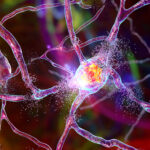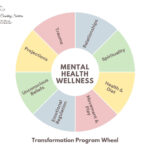It’s no secret that a diet high in refined sugar isn’t ideal for our physical health. But what if I told you that your sugary delights and processed foods might also be playing a role in your mental well-being? Emerging research suggests a strong link between high blood glucose, refined sugar consumption, and an increased risk of depression.
The Sugar-Brain Connection
Our brains are incredibly complex organs that rely on a delicate balance of nutrients and neurotransmitters to function optimally. When we consume refined sugar, it triggers a rapid spike in blood glucose levels, followed by a crash. This roller-coaster effect can wreak havoc on our mood and energy levels, leading to feelings of irritability, anxiety, and fatigue.
Over time, repeated spikes and crashes in blood sugar can impair the brain’s ability to regulate mood. Studies have found that individuals with consistently high blood sugar levels are more likely to experience symptoms of depression. Additionally, refined sugar can interfere with the production of serotonin, a neurotransmitter that plays a crucial role in mood regulation.
Gut Bacteria and Mental Health
But the story doesn’t end there. Our gut microbiome, the vast community of bacteria residing in our digestive tract, also plays a significant role in our mental health. Research suggests that an imbalance in gut bacteria, known as dysbiosis, can contribute to various mental health disorders, including depression.
A diet high in refined sugar can disrupt the delicate balance of our gut microbiome. The harmful bacteria thrive on sugar, while the beneficial bacteria that produce mood-boosting compounds suffer. This imbalance can lead to inflammation in the gut, which has been linked to changes in brain function and mood disorders.
The Connectivity Conundrum
So, how exactly does a high-sugar diet without the right gut bacteria lead to depression? The answer lies in the gut-brain axis, a bidirectional communication network that connects our gut and brain. When our gut bacteria are out of balance, it can disrupt the signals sent along this axis, leading to changes in brain chemistry and function.
One of the ways this manifest is through impaired connectivity within the brain. Research has shown that individuals with depression often exhibit altered connectivity patterns in certain brain regions. This disruption can affect our ability to regulate emotions, cope with stress, and maintain a positive outlook.
Sweet Solutions for a Healthier Mind
The good news is that we can take steps to protect our mental health by nourishing our brains and gut. Here are a few tips:
- Reduce refined sugar intake to special occasions: Limit sugary drinks, processed foods, and refined grains. Opt for whole, unprocessed foods like fruits, vegetables, and whole grains, healthy fats. Look into the Paleo diet or Mediterranean diet if you prefer more carbs. follow 80/20 rule. 80% whole foods, 20% free foods.
- Feed your gut bacteria: Include fermented foods like yogurt, sauerkraut, and kimchi in your diet. These foods contain beneficial bacteria that can help restore balance to your gut microbiome.
- Prioritize protein and healthy fats: These nutrients can help stabilize blood sugar levels and support brain function.
- Manage stress: Chronic stress can exacerbate the negative effects of sugar on the brain. Find healthy ways to manage stress, such as exercise, meditation, or spending time in nature.
By taking a holistic approach to our diet and lifestyle, we can support both our physical and mental well-being. Remember, it’s not about perfection but about making sustainable changes that nourish our bodies and minds. The answer is simple, but not easy. I can walk you through these changes and help you reclaim your mental health.
References
- Knüppel, A., Shipley, M. J., Llewellyn, C. H., & Brunner, E. J. (2017). Sugar intake from sweet food and beverages, common mental disorder and depression: prospective findings from the Whitehall II study. Scientific Reports, 7(1), 6287.
- Taylor, A. M., Holscher, H. D., & Levitsky, D. A. (2020). The gut microbiome as a therapeutic target for mood disorders. Neurotherapeutics, 17(3), 986-1002.
- Firouzi, R., Zarrindast, M. R., & Saadat, M. (2018). Depression and sugar intake: A systematic review and meta-analysis of observational studies. Psychiatry Research, 269, 85-92.







